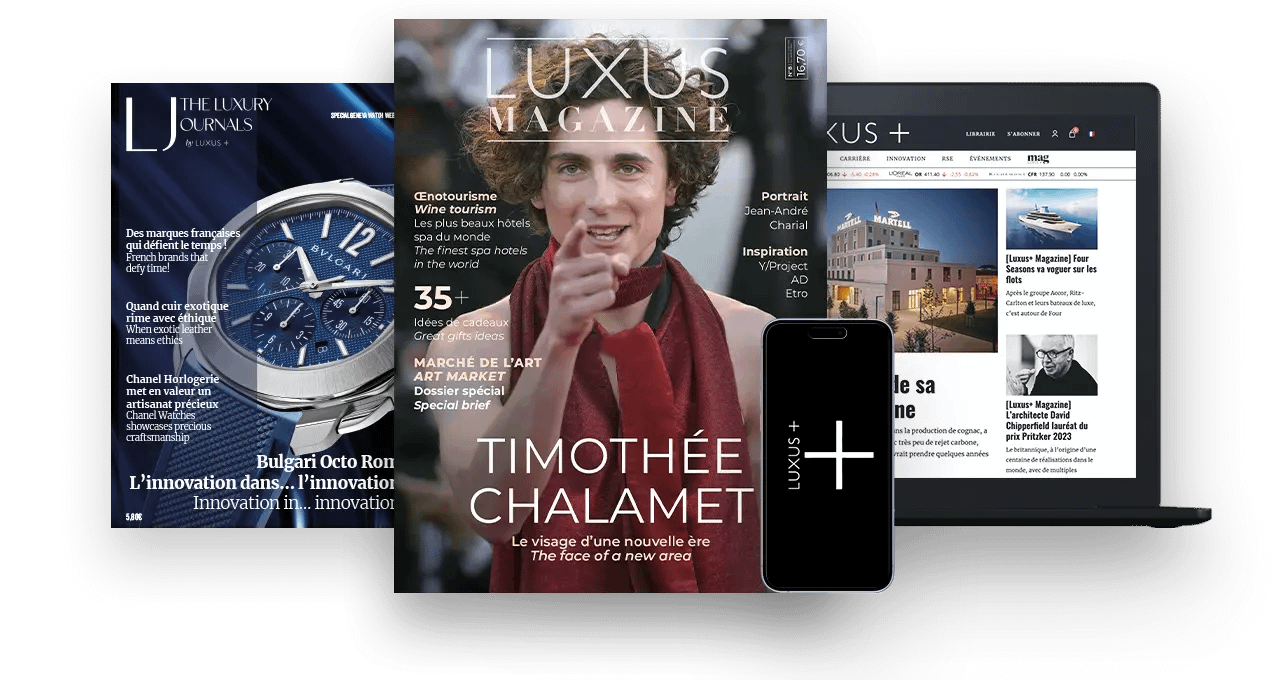If generative artificial intelligence is making headlines, it’s mainly in the worlds of graphic design and advertising, yet this technology can also act right up to the creative process of designers and fashion makers. Founded in October 2020, Imki has developed specialized AI for fashion professionals, and is now opening up to the luxury sector. LUXUS PLUS met its COO, Eric Gehl at the Reluxury trade show.
Vivatech, Tech for Retail and now Reluxury…
Imki was undoubtedly the most ubiquitous French fashion tech player at this year’s trade shows. While the company’s preparations for a forthcoming fund-raising round are no stranger to this hyper-presence, its use of generative artificial intelligence applied to the business constraints of fashion professionals is a major contributor.
The Strasbourg-based company won the “Innovation Awards Honoree” at CES 2024 in Las Vegas, in the “Content & Entertainment” category. On this occasion, Imki presented its first capsule collection for the leading French brand in the modern contemporary fashion segment: The Kooples. A denim wardrobe entirely composed using proprietary and secure artificial intelligence.
With a background in augmented reality and some 30 years’ experience in tech and digital, Eric Gehl, COO (Chief Operating Officer), tells us more about this “augmented creative artificial intelligence”.
LUXUS PLUS: Could you tell us a little more about the genesis of the Imki adventure?
It all started with Frédéric Rose. A tech-savvy Beaux-Arts graduate. In other words, a rarity. As a designer by trade, he has always used the technological tools at his disposal, starting with Indesign. 4 years ago, he was working on a project for a cultural space with special constraints: the Théâtre Antique d’Orange. It was there that he grasped the true power of these emerging AIs, long before the current wave. He invested several million euros in R&D to develop an AI platform based on business issues. From the outset, Frédéric insisted that AI should be a combination of models and data. Having himself experimented with the most widespread foundation models such as Mid Journey, DALL-E or Stable Diffusion, he quickly realized that they didn’t work for verticals like the Creative and Cultural Industries (CCI).
LUXUS PLUS: The Orange theater is a priori more linked to heritage and culture, so why fashion?
Fashion has been the most responsive CCI sector, essentially in response to economic issues. Companies like The Kooples wanted to develop what I call specialized AI, in other words, specific to an industry sector. Coming from a creative background, Frédéric Rose understood that AIs require much more than a simple American-style model based on an all-or-nothing logic, often resulting in cultural biases in the database itself.
He came up with the idea of removing the fat and working in collaboration with the software world. AI then appears as a tool linking the world of data and the world of professional skills, i.e. model makers, designers and stylists. Imki constantly brings these three worlds together to develop an AI solution that meets the constraints of this market.
LUXUS PLUS: To date, The Kooples is one of the most emblematic use cases of your AI-powered solution applied to the fashion sector. Why is that?
The Kooples teams had previously tested all Mid Journey, DALL-E and Chat GPT. However, despite the beautiful images generated, they realized that they were unusable as they stood. In fact, these visuals often failed to respect brand codes, product attributes and, even less, the technical specifications required to launch them into production. In other words, most AI-generated images never reach the boutique: they can’t be operationalized or converted into a real collection or product.
For this collaboration with The Kooples, on the contrary, we consulted directly with the collection directors and reinvented iconic products such as the Émilie bag. To achieve this, the fashion brand entrusted us with its data, which we refined to skim it of everything we no longer wanted. We train the AIs and models to respect and recognize the brand and its stylistic invariables. We can even imbue them with any trend. And all this training of a brand-savvy AI is achieved in just a few weeks.
LUXUS PLUS: What is the primary benefit for a brand of this type, and what is your business model based on?
Read also > [CHRONICLE] Luxury & Beauty: the impact of generative AI on the customer experience
Featured Photo: © Imki



































